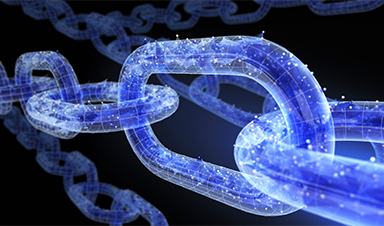Geography was once the biggest hurdle to sharing talent, knowledge and creativity. In the connected world, borderless communities form quickly and innovate when people with shared interests, even in niche subjects, have a platform to engage with each other.
Around the globe employers must understand the implications and take action.
No More Unpaid Co-creation
In 2010, the blockchain and cryptocurrencies were in their infancy. There simply was no practical method to provide monetary rewards to gamers, en masse, for their efforts in co-creating games. Now that these technologies are established, a model of guaranteed financial rewards for co-creators is possible.
Providing and incentivizing people with genuine economic benefit to do the work they already want to do—co-creating games, for example—will end this unpaid labor. Financial rewards will also increase both the quality and quantity of the work enormously. In addition, stopping the extraction of surplus value from co-creators by corporate players and putting it back into their pockets will lead them to buy more games.
Compare this model to that of social media such as Facebook, Twitter and Instagram. Their profit comes by exploiting their users’ immaterial labor: hoarding data and selling behavioral information, demographic statistics, and purchasing and web-browsing history.
All forms of contribution to capital—not merely the financial contributions of shareholders—deserve to receive some reward, and blockchain technology will help to ensure it for the games industry. Gamers will receive cryptocurrency for playing and reviewing games, giving feedback to developers, and sharing social content to help promote games they love. It also means developers will be able to access to millions of gamers from the beginning to the end of the creation process. They’ll even be able to license user-generated content, in addition to selling and marketing these games through the platform.
This new model comes ahead of an important transition in the global labor market. There is a wide consensus that AI and advanced technologies will make many traditional jobs and careers obsolete. But new job and careers will also emerge. For some people, this transition may simply provide additional income through, for example, occasionally renting out a room through Airbnb. For others, part-time passions could become full-time careers.
Differing from the current sharing economy, though, the livelihoods of players and developers will offer the means to bypass economic turmoil in their countries of residence.
Image Credit: Alias Studio
News This Week
Fever-Proof Bird Flu Variant Could Fuel the Next Pandemic
Bird flu viruses present a significant risk to humans because they can continue replicating at temperatures higher than a typical fever. Fever is one of the body’s main tools for slowing or stopping viral [...]
What could the future of nanoscience look like?
Society has a lot to thank for nanoscience. From improved health monitoring to reducing the size of electronics, scientists’ ability to delve deeper and better understand chemistry at the nanoscale has opened up numerous [...]
Scientists Melt Cancer’s Hidden “Power Hubs” and Stop Tumor Growth
Researchers discovered that in a rare kidney cancer, RNA builds droplet-like hubs that act as growth control centers inside tumor cells. By engineering a molecular switch to dissolve these hubs, they were able to halt cancer [...]
Platelet-inspired nanoparticles could improve treatment of inflammatory diseases
Scientists have developed platelet-inspired nanoparticles that deliver anti-inflammatory drugs directly to brain-computer interface implants, doubling their effectiveness. Scientists have found a way to improve the performance of brain-computer interface (BCI) electrodes by delivering anti-inflammatory drugs directly [...]
After 150 years, a new chapter in cancer therapy is finally beginning
For decades, researchers have been looking for ways to destroy cancer cells in a targeted manner without further weakening the body. But for many patients whose immune system is severely impaired by chemotherapy or radiation, [...]
Older chemical libraries show promise for fighting resistant strains of COVID-19 virus
SARS‑CoV‑2, the virus that causes COVID-19, continues to mutate, with some newer strains becoming less responsive to current antiviral treatments like Paxlovid. Now, University of California San Diego scientists and an international team of [...]
Lower doses of immunotherapy for skin cancer give better results, study suggests
According to a new study, lower doses of approved immunotherapy for malignant melanoma can give better results against tumors, while reducing side effects. This is reported by researchers at Karolinska Institutet in the Journal of the National [...]
Researchers highlight five pathways through which microplastics can harm the brain
Microplastics could be fueling neurodegenerative diseases like Alzheimer's and Parkinson's, with a new study highlighting five ways microplastics can trigger inflammation and damage in the brain. More than 57 million people live with dementia, [...]














Leave A Comment